Ice Portraits
Field Notes III.IV: Intimate photos of ice in nature and a philosophical inquiry into what motivates the pursuit of them
Welcome to Field Notes!
I was on a quest to see ice. These were the successive days of bitter cold in early January, before the first snow event. The snow became the focus of my job on the day it arrived, but working gave me the excuse to venture out in my territory to see, experience, and photograph the unfamiliar wintery conditions. Before all of that there was only the cold. Winter had not been this persistently cold here in several years, so before the snow came my intention was directed towards photographing ice.
Right now I am limited by external circumstances. My truck that I struggle to afford needs repairs that I cannot afford. It drives ok for now, but I have lost confidence in its ability to handle long distances or rough mountain roads. So, while I assess how to proceed, I look for opportunities to find original views of the natural world and intimate landscapes around me. Hence, my quest for ice.
On the morning of January 8 I went to Ben Burton Park. I thought of the Middle Oconee River that flows here. The cold that early morning was pervasive, but frost on the ground was minimal. The atmosphere had been too dry for too long. What I saw did not translate well into photographs. The river flowed by with motion that prevented any ice from forming, even along the river banks. I suppose cold is relative to what you are familiar with. This is Georgia, and our rivers do not freeze.
My second attempt to find ice came the next day. I would explore Sandy Creek Nature Center. This nature preserve encompasses wetlands and flood plains along its namesake waterway to the east and the North Oconee River at its western edge. I photographed ice there back in 2020. Maybe I would find it there again.
A chill spread through my house when I arose in the early morning. I clutched my mug of coffee like a life preserver as I gathered my senses in the sea of darkness before dawn. Then came the objectionable task of stepping out into the raw world outside. But I followed without hesitation the lure of deep secrets that nature might reveal.
The dawn arrived clear and utterly still. As the sun rose over the wetlands its rays lit the tips of grasses and bog vegetation. Small silent birds darted among the bare trees as I broke the stillness with boots on frozen leaves. A Canada goose cried out from Claypit Pond, just around the next hill. My gloved hands were numb, yet these geese paddle the water with bare feet and remain unvexed by the frigid temperatures.
I found the ice I was seeking. All of the shallow pools and bogs and flooded plains were frozen over. Claypit Pond, being deep and wide, was not frozen over, yet it was bordered by ice along its shores.
In cold solitary silence I studied this magic spread across the land. Ice gleamed in the reflected sunlight and time was only measured by my own heartbeat. I came to understand that this story of ice was not told in the wider landscape around me. Instead, it was a narrative of intimate small scenes. The starburst shapes of ice crystals. Leaves frozen in place. Patterns of frozen water overlaid transparently on the patterns of the surfaces below. The reflections of trees reaching down, down into the earth towards the blue sky above. And the light! The light that evokes a myriad of colors and contrasts revealing the intricate beauty of the cold. These are the stories I wanted to capture in photographs.
I often question myself as to why I do demanding things such as venturing out into the cold, climbing mountains under heavy loads, or spending extended periods of time alone, for photographs. I would certainly do some of these things just for the challenge itself, even without photography. Yet, I feel drawn to seek them even more with my camera. Then, I spend time and effort to process each photo before it is presentable. Why? Photography certainly hasn’t returned my affection with any financial rewards to speak of. The curious part is that I have no doubts about what I do. When I question myself it comes from an amused, detached perspective of wondering about the inevitable.
I’ve been reading Epictetus. Not just a quote here and there, or a passage illustrating a point, as so often comes up in articles on Stoicism life hacks. No, I am reading Discourses, slowly and deliberately, in order. Robin Waterfield’s excellent translation makes this doable, and the footnotes are critical in clarifying points that would otherwise be lost on me.
In Book II, Discourse I Epictetus discusses caution vs confidence. He urges caution regarding things in our control. These are our judgements and choices, the things we commit to and decide upon; our virtues. So, we must be guarded in what we devote our time, attention, and values towards.
Other things such as success, money, status, a truck in need of fixing, and even our own bodies and lives are not fully under our control. We become troubled when we try to control what we cannot, so all of these are ultimately indifferent to us. With our will guarded, we can boldly go out into the world and deal with these things with confidence.
Make it clear by your actions alone that you know how to prevent disappointment and how to avoid encountering what you don’t want to encounter. Leave the study of law court arguments, hypothetical problems, and syllogisms to others, while you focus on how to face death, imprisonment, torture, and exile. Approach all these things with confidence, trusting in one who has called you to experience them and has judged you worthy of this post- an assignation that will enable you to show what a rational command center is capable of when it confronts forces that aren’t subject to will.
- Epictetus 2.1.37-39
This discourse resonated with other passages I read recently in the book An Open Life, which is a conversation between the author, Michael Toms, and Joseph Campbell. Campbell dedicated his life and career to the study of myth and how it universally relates to the human psyche.
I haven’t yet dived into the pool of Campbell’s works, but that jump is coming soon. From what I have read, Campbell talks about the Hero, who is called to adventure. That Call is essentially an inner sense that there is a broader experience to be had in life that what ordinary society has to offer. One can follow that adventure and bring back a message for the vitality of the community. In fact, he says the Hero must follow the Call-
and if he doesn’t follow that, but remains in the society because it’s safe and secure, then life dries up. And then he comes to that condition in late middle age: he’s gotten to the top of the ladder, and found that it’s against the wrong wall.
Campbell seems to equate the Call with following “one’s bliss- the thing that really gets you deep in the gut and that you feel is your life.” I, however, see bliss as a transient euphoric emotion. Could it be that he is describing what Epictetus and the Stoics describe as the will, virtue, and what we cautiously assent to pursue as the good in life?
Further along, Campbell states
if you follow your bliss, you’ll have your bliss, whether you have money or not. If you follow money, you may lose the money, and then you don’t have even that. The secure way is really the insecure way and the way in which the richness of the quest accumulates is the right way.
In this I hear echoes of Epictetus. We are so often cautious and guarded with money, safety, and the security of roles or careers handed to us by circumstance or society. In reality, these are the things over which we do not have full control. Valuing them is in reality the insecure way. Instead, we should accept the possibility of their loss with confidence.
The richness of the quest unfolds when we cautiously remain true to our will. We assent to what we have full and free control over- our honor, our trustworthiness, our virtue. Following these may lead on a dangerous adventure outside of the norms of society. Yet for those who choose this path, it is the only true way. Our will exists freely within all of us and cannot be taken away. This is our “bliss,” and we will always have it.
How can I relate this to my own experience? I am not a hero in the common sense of the word, and wouldn’t want to be. But, looking back over my life I see that I have heard the Call since I was very young. At times I took hesitant steps towards it. At other times I refused it. Perhaps now I find myself halfway up Joseph Campbell’s ladder and am trying to adjust its position.
I have chosen to see magic in the natural world around me. Sometimes I can approximate what I see in a photograph. My truck may fully break down. One day my camera may break. However, the way I see the world can never be taken from me. That vision has become part of my quest and leads me into some tough and harsh circumstances. I go with confidence, though, because I know I am answering the Call.
I suppose this was a two part essay. The first was a literal story of adventure, however small. The second was a big step into some philosophical musings. Is this the answer to finding purpose and meaning in life. No, not entirely. I do, however, think I stumbled upon some valuable insight.
Any Joseph Campbell fans out there? What are your thoughts on answering the Hero’s Call and following your bliss vs building a “safe and secure” life of building a career focused on retirement some day? An Open Life seems like it will be a quick read. After that I plan to tackle Hero with 1000 Faces. I have high hopes that it will give me many ideas to comment on. Until then, let me hear your ideas!
I put a lot of work into Field Notes and make it available all for free in the hopes that we can learn and grow together. Here are a few ways that you can contribute to help me keep this thing going-
Or, purchase a full resolution digital download of one of my photos with a license for personal use for a print, computer/phone wallpaper, or whatever. Remember, paid subscribers receive select images for free and 50% off of the others.


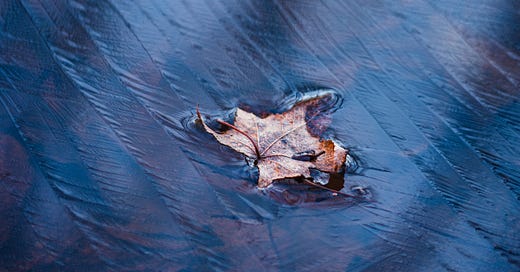



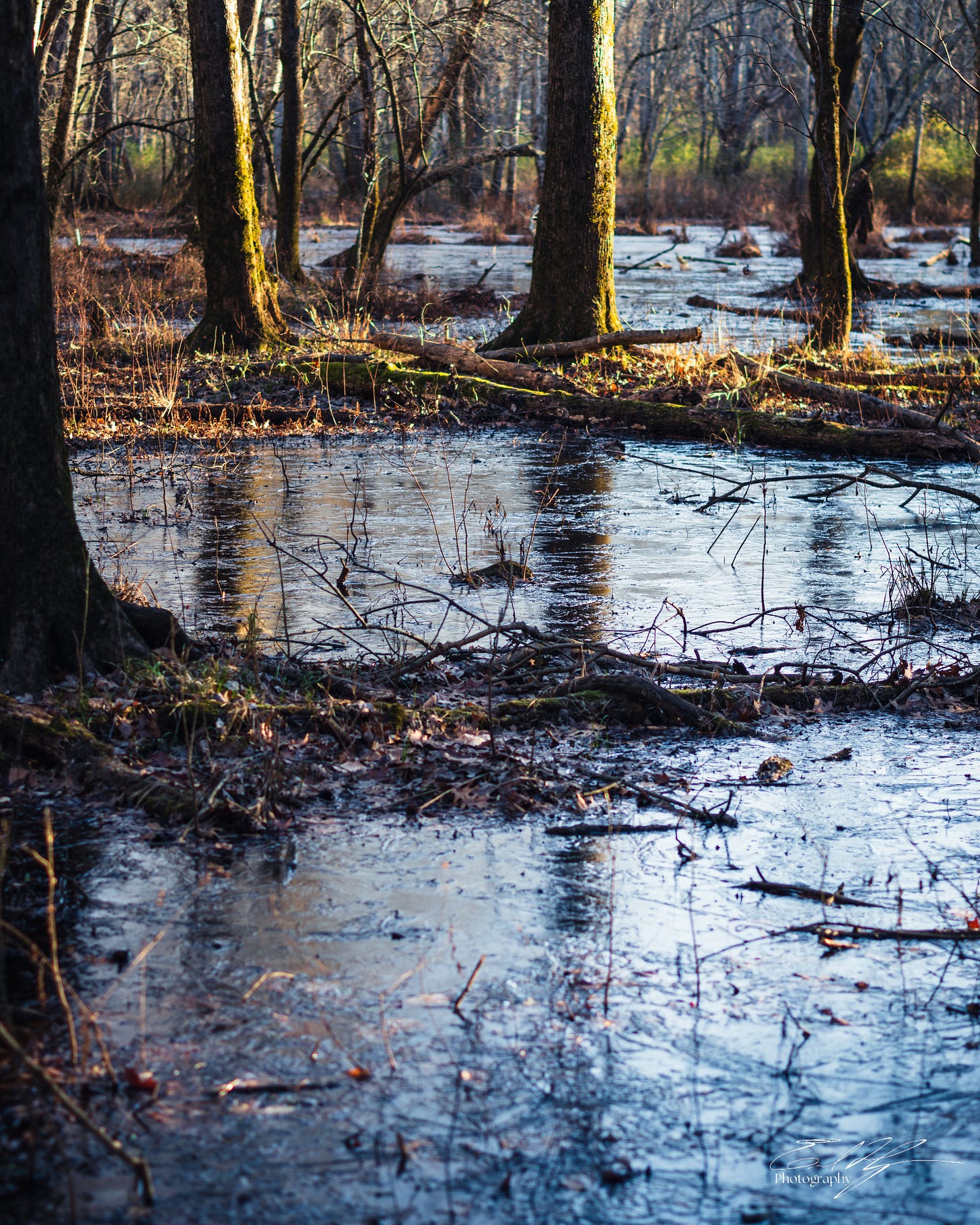
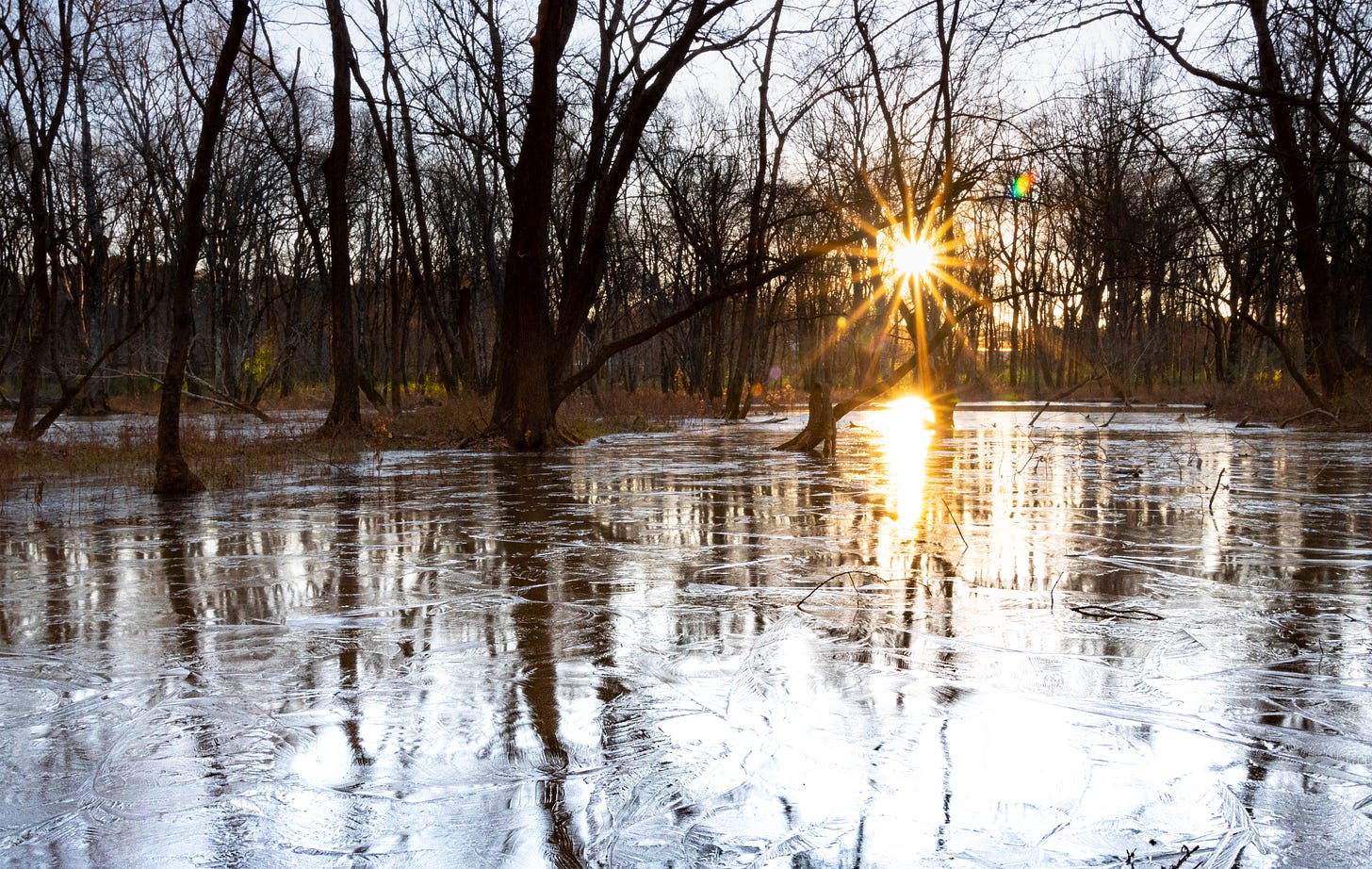
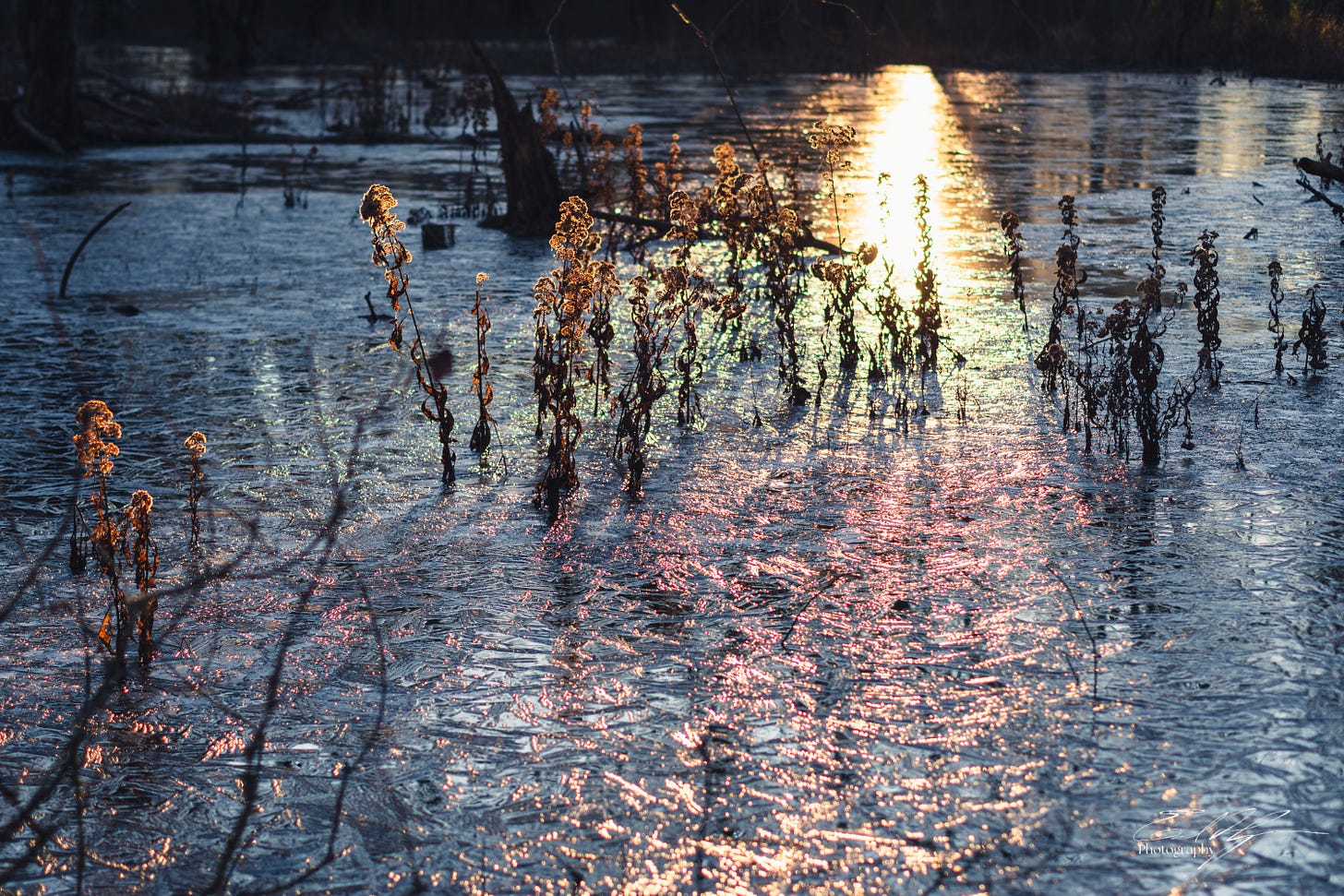
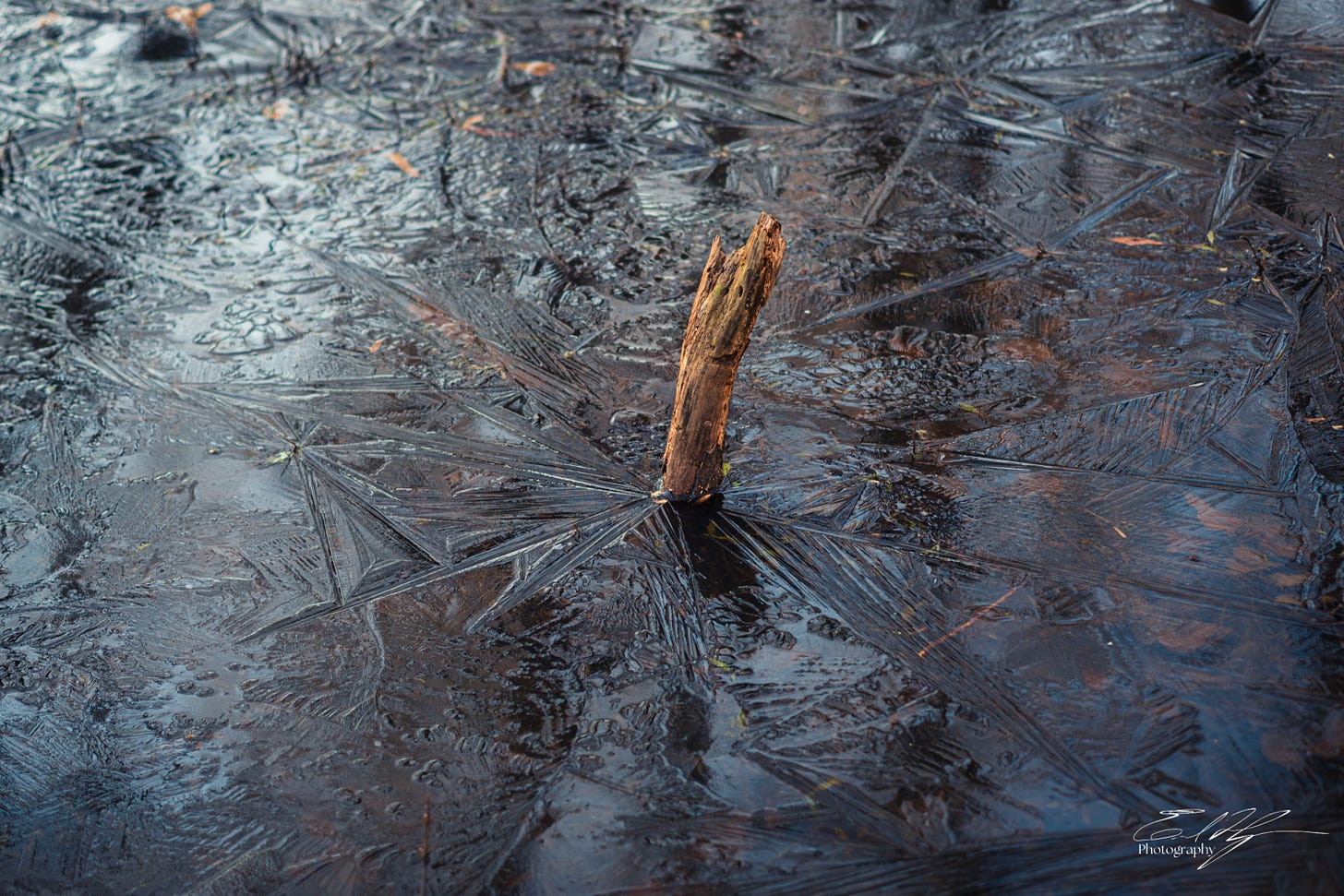
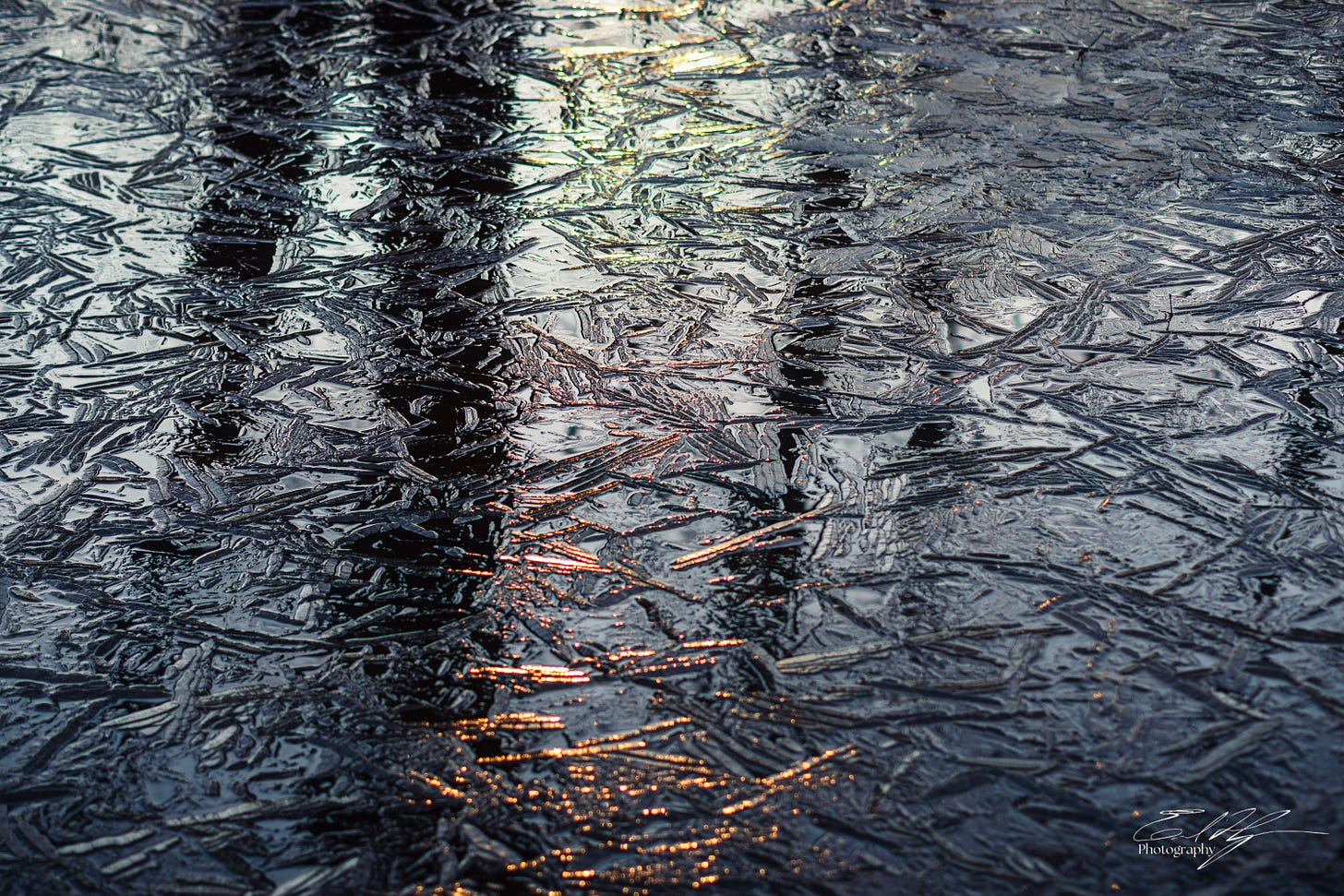

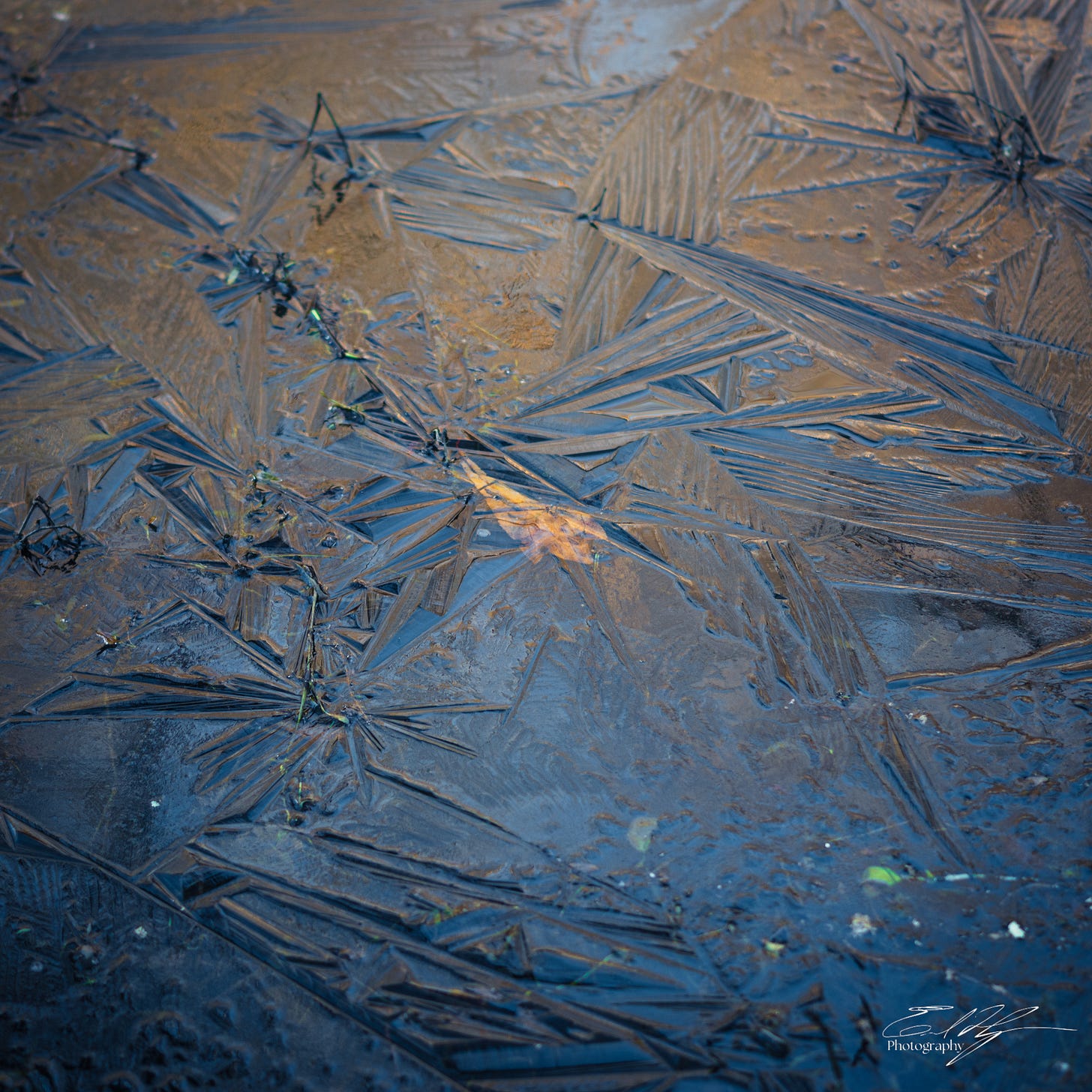




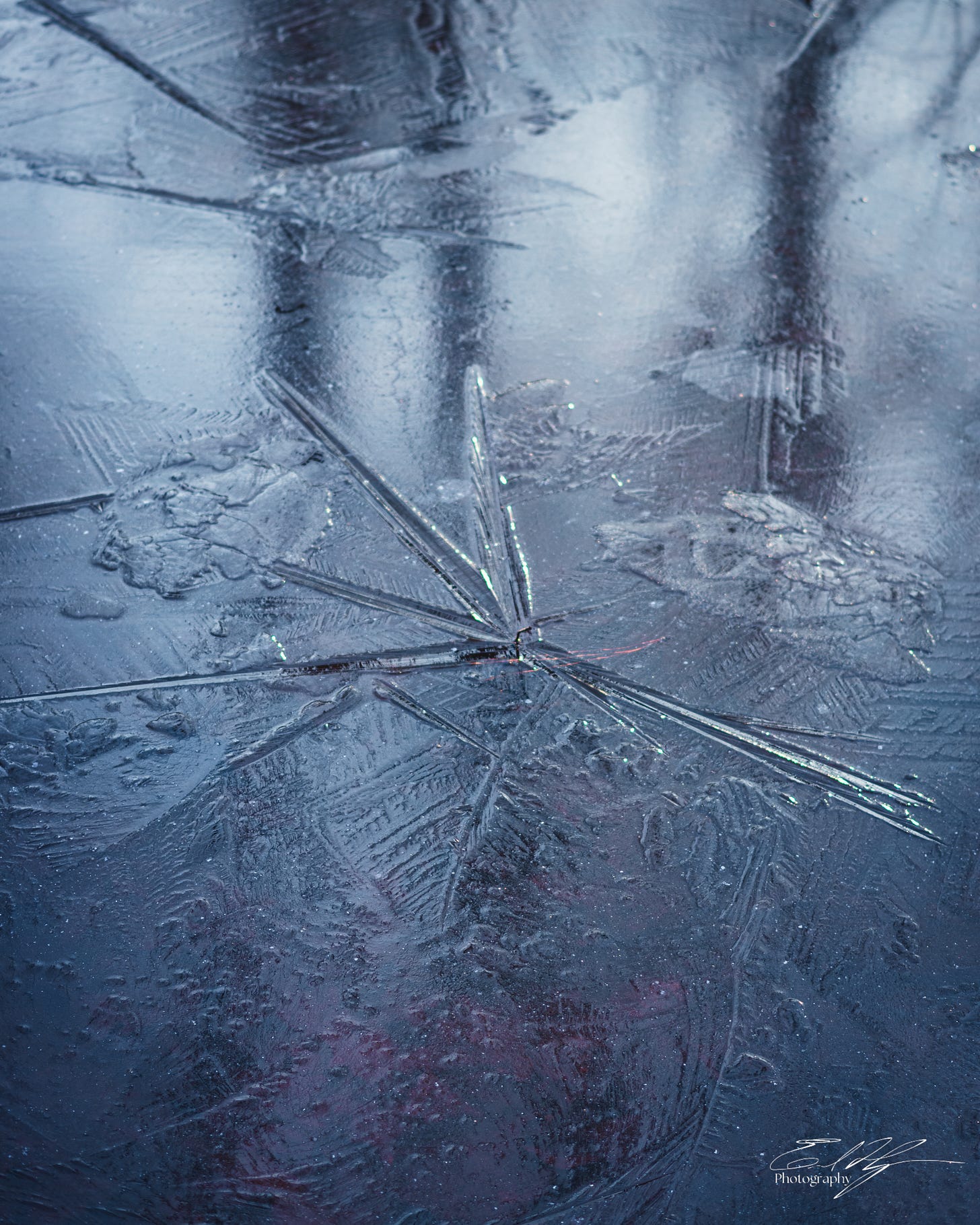

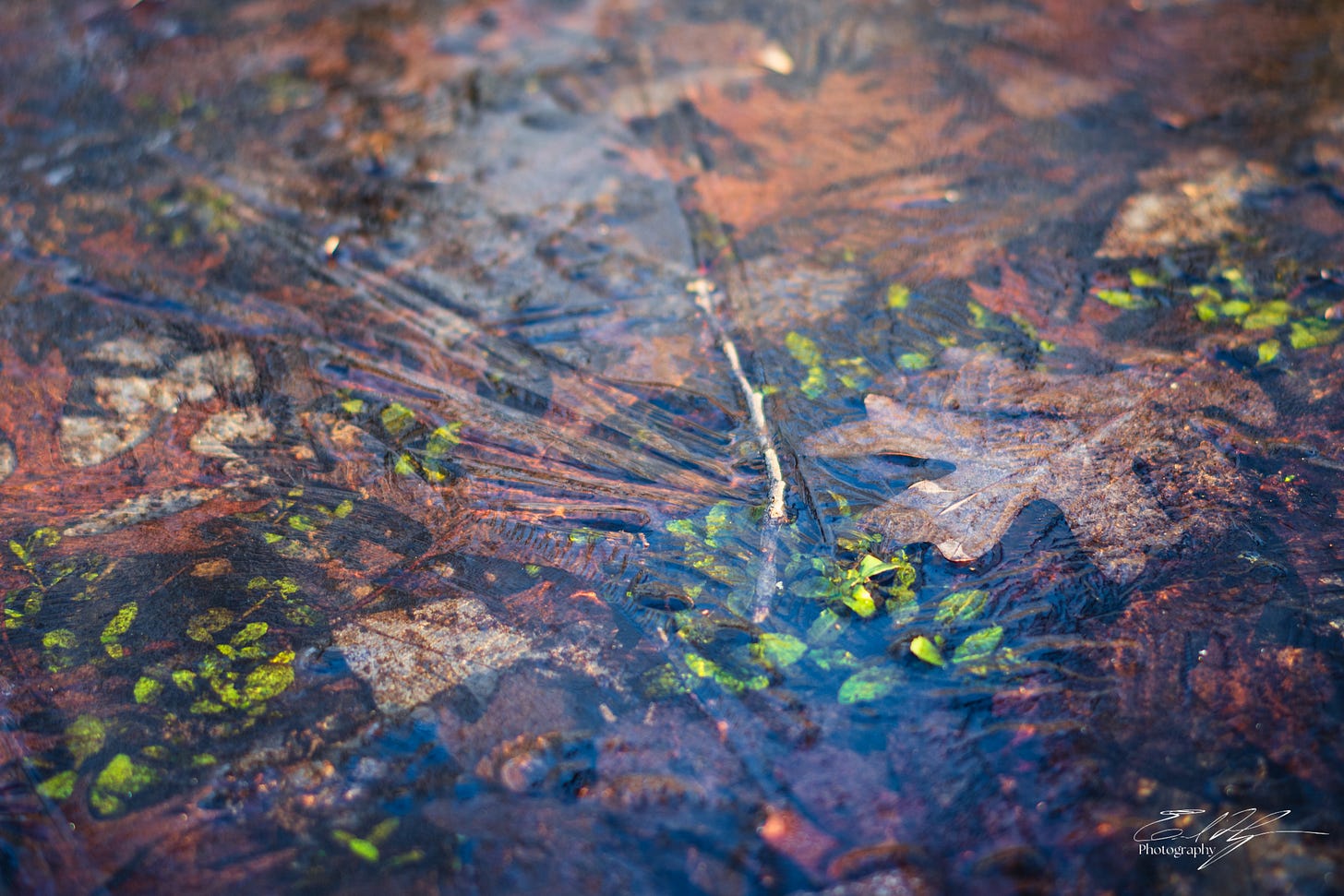
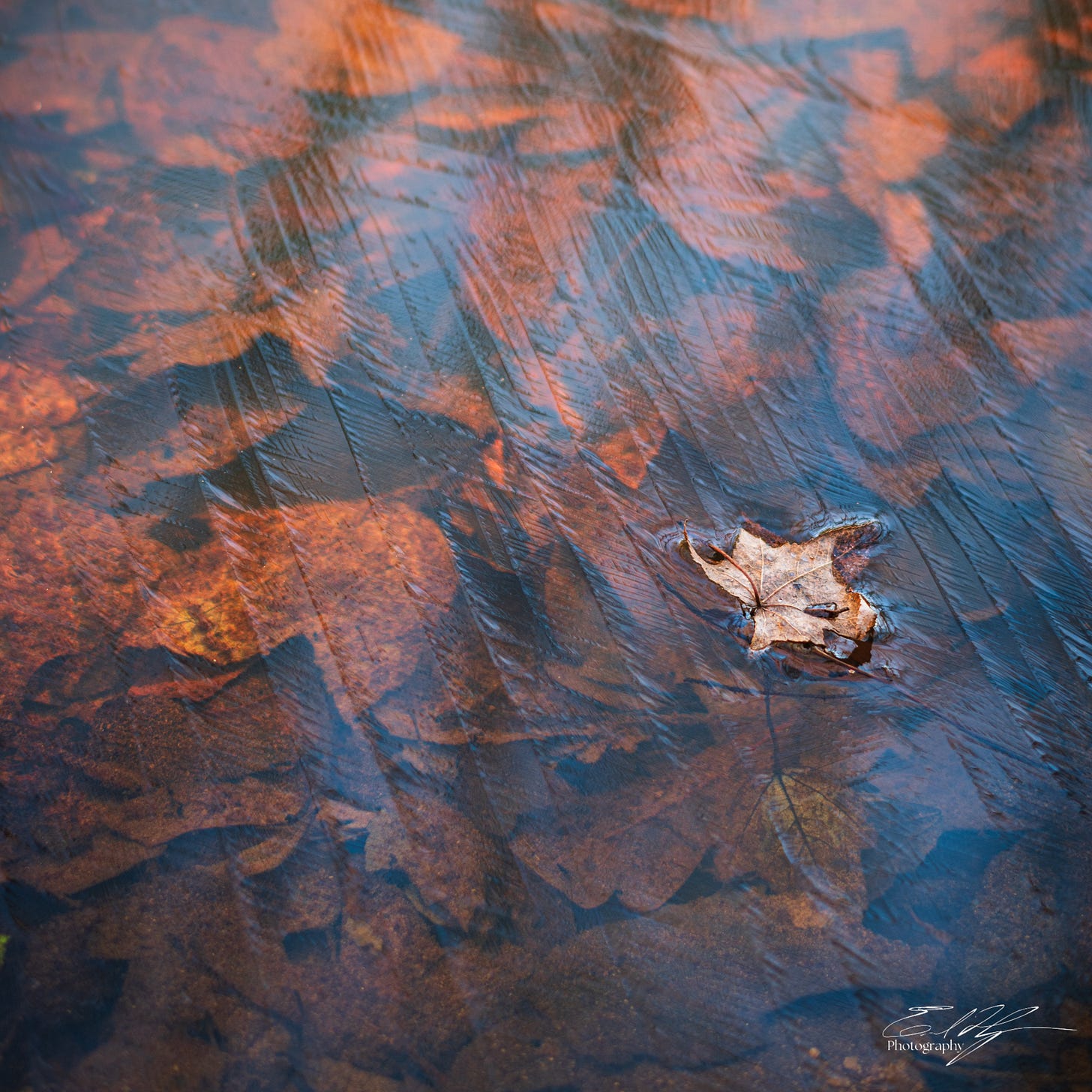



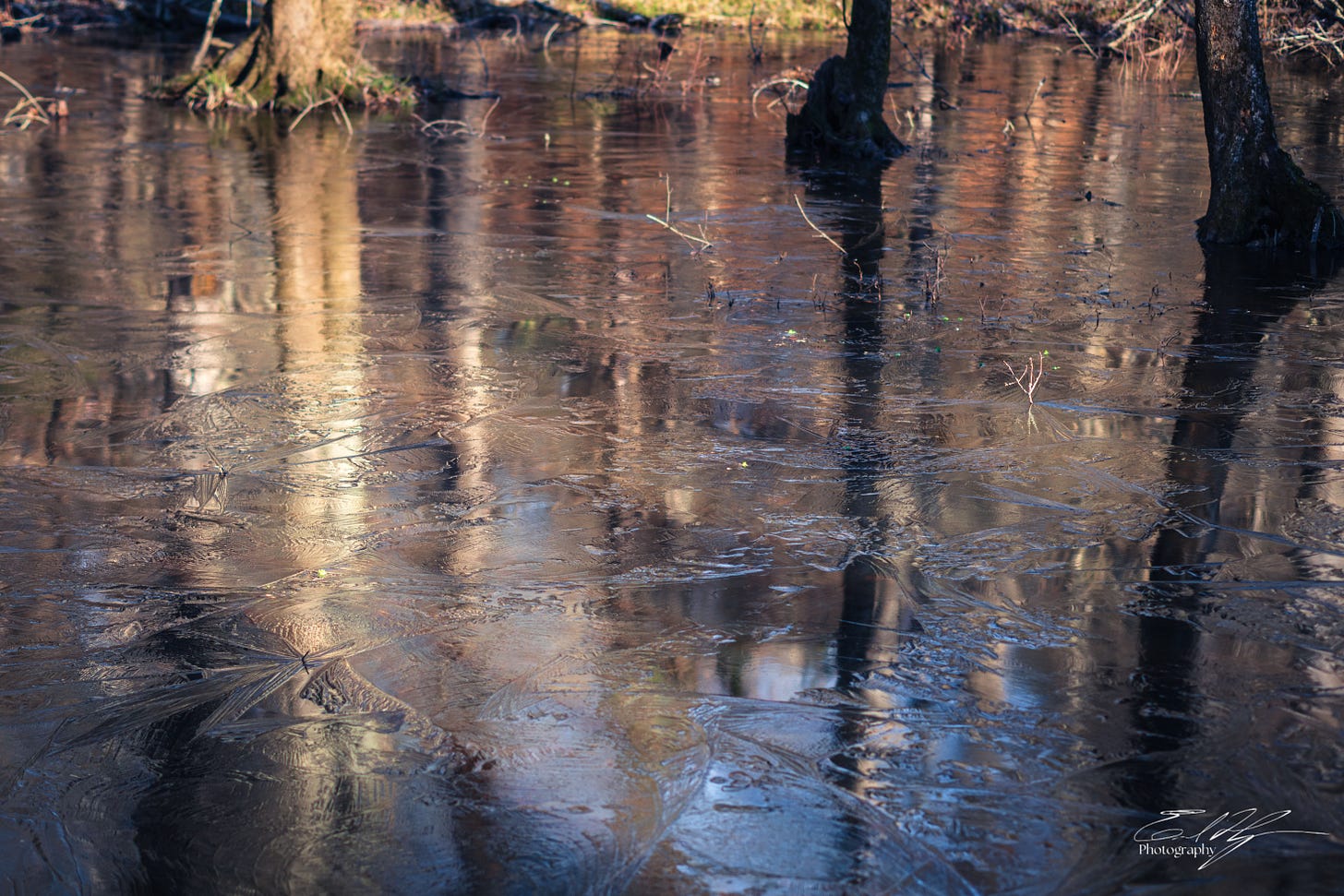



Man, phenomenal post. Glad Jesse McEntee led me to your account. Powerful reflection and love the ties to my favorite philosopher, Epictetus
Wow, beautiful images and words, both. Thank you, Erik! I too love ice in winter and was already getting ready to write about it. Thanks for further inspiration, and thanks for always sharing your adventures with us.